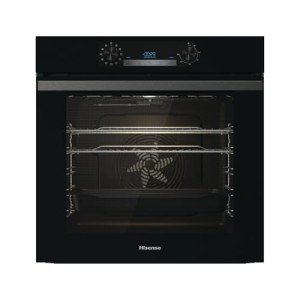All-Inclusive Guide To Intergrated Cooker

The Integrated Cooker: A Comprehensive Guide to Modern Cooking Solutions
The development of kitchen appliances has reinvented cooking and cooking strategies, making meal preparation more effective and satisfying. Among these developments, the integrated cooker stands apart as a flexible and space-saving addition to modern kitchens. This post explores the different aspects of integrated cookers, consisting of types, benefits, features, and a comparison with traditional cooking techniques.
What is an Integrated Cooker?
An integrated cooker is a compact cooking appliance that combines numerous cooking functions into one system. Often built into kitchen cabinetry, these cookers are developed to save space while boosting kitchen visual appeals. They usually incorporate a range of functionalities, such as baking, grilling, steaming, and even pressure cooking.
Key Features of Integrated Cookers
- Multi-Functionality: Integrated cookers can carry out various cooking tasks, getting rid of the requirement for several appliances.
- Space-Saving Design: These cookers fit flawlessly into kitchen units, making them ideal for contemporary homes with minimal space.
- Advanced Technology: Many integrated cookers come equipped with wise technology, such as programmable settings, touch-screen controls, and connection choices.
- Energy Efficiency: Built with modern-day materials and design, they often take in less energy compared to standard cooking techniques.
Types of Integrated Cookers
The market provides different kinds of integrated cookers, each with its unique set of functions and functionalities. Here are the most typical types:
| Type | Description | Example Use |
|---|---|---|
| Built-in Ovens | Ovens that are suited wall systems or cabinets | Baking bread, roasting meats |
| Induction Hobs | Cooktops that use electro-magnetic energy to heat pots and pans | Rapidly boiling water, sautéing |
| Steam Ovens | Appliances that cook food using steam for healthier outcomes | Steaming veggies, fish |
| Microwave Ovens | Integrated microwaves for fast heating and cooking | Reheating leftovers, making popcorn |
| Combination Ovens | A mix of traditional and steam cooking innovations | Baking while ensuring wetness retention |
Advantages of Using Integrated Cookers
Integrated cookers provide a host of benefits over traditional cooking tools. Below are a few of the crucial benefits:
- Space Efficiency: Ideal for compact cooking areas, integrated cookers utilize vertical areas successfully.
- Structured Cooking Process: With several functions readily available, users can shift from one cooking technique to another with minimal effort.
- Boosted Aesthetics: Many integrated cookers can be found in sleek styles that blend well with contemporary kitchen design.
- Enhanced Cooking Control: Programmable functions enable precise cooking, guaranteeing much better meal outcomes.
Integrated Cookers vs. Traditional Cooking Appliances
When considering meal preparation choices, it is vital to weigh the benefits of integrated cookers against standard cooking appliances. Below is a contrast chart:
| Feature | Integrated Cooker | Traditional Appliances |
|---|---|---|
| Space Efficiency | High | Lower |
| Multi-Functionality | Yes | No (needs several appliances) |
| Energy Consumption | Often lower | Can be higher |
| Cooking Speed | Faster (especially with induction) | Varies |
| Design | Modern and streamlined | Differs widely |
The integrated cooker is a forward-thinking device that satisfies the needs these days's busy way of life. russell hobbs built under double oven of functions, space-saving style, and smooth aesthetic appeals make it a rewarding financial investment for any modern-day kitchen.
For those aiming to save time, space, and effort in meal preparation, integrated cookers use an outstanding service that boosts the cooking experience while delivering tasty, well-prepared meals.
Regularly Asked Questions (FAQs)
1. What is the typical rate of an integrated cooker?
The rate of integrated cookers can vary extensively, typically varying from ₤ 500 to ₤ 3,000 depending on features, brand, and size.
2. Just how much maintenance do integrated cookers need?
Maintenance typically consists of routine cleansing of surfaces and inspecting for any software updates if they include clever technology. It's recommended to follow the producer's standards.
3. Can I replace my existing oven with an integrated cooker?
Yes, integrated cookers can frequently replace conventional ovens, but it is essential to seek advice from with a professional to ensure compatibility with your kitchen design.
4. Are integrated cookers difficult to set up?
Setup can be uncomplicated for those with DIY experience. Nevertheless, employing a certified specialist is recommended to ensure proper setup.
5. Who benefits most from utilizing an integrated cooker?
Families, time-pressed individuals, and those living in compact houses especially take advantage of the multi-functionality and space-saving style of integrated cookers.
In this age of benefit and efficiency, integrated cookers are redefining how we approach food preparation. Whether you are an experienced chef or a cooking novice, incorporating this effective appliance into your kitchen can considerably boost your culinary experience.

